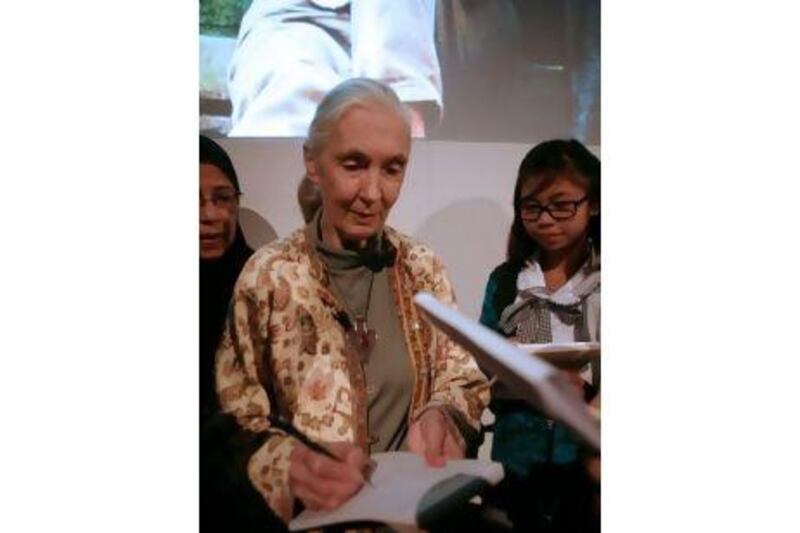ABU DHABI // Jane Goodall, the world's leading expert on chimpanzees, says the younger generation is the only hope to stop the world from moving in the "wrong direction" on environmental sustainability.
Speaking to students yesterday at the Eye on Earth Abu Dhabi 2011 Summit, the British primatologist said that "people have to wake up".
Ms Goodall, who serves as a UN Messenger of Peace, said she travelled 300 days a year to spread her message. "We are at a crossroads, so we need to inspire young people, who are about to burst into society," she told the students at the Abu Dhabi National Exhibition Centre.
Ms Goodall is best known for her extensive studies of the social and family interactions of the wild chimpanzees in Gombe Stream National Park in Tanzania, and she has worked with chimpanzees for more than 45 years.
During her research in Tanzania, she managed to challenge two long-standing beliefs in the scientific community: that only humans could construct and use tools, and that chimpanzees were vegetarians.
She also founded the Jane Goodall Institute and works on conservation and animal welfare issues.
She said scientists who used chimpanzees as test animals "refuse to care about the similarities in emotion and intellect that chimpanzees have with humans".
"The biggest difference between us and the chimpanzees is that we have an amazing intellect, so we can do amazing things," she said. "But If we're so smart, why are we ruining our planet and poisoning the air and water?"
Times have changed for the worse, she said, but added that there was still hope in the younger generation.
"We've lost wisdom. In the old days, people used to think about the future. Today, we don't; we only think about how things affect us now. It's up to you to change that," she told the students. "If we continue like this, the time will come when the planet absolutely can't support life."





